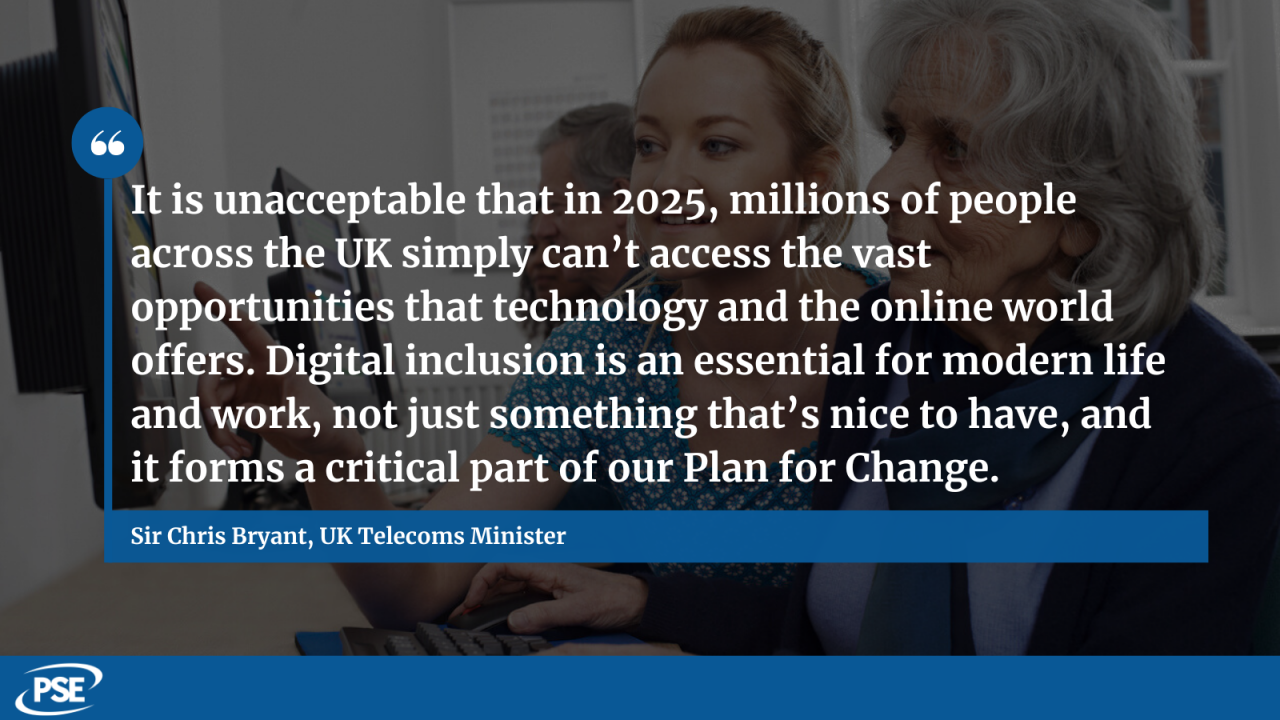The UK Government has announced £9.5 million in new funding to support local councils, charities, and community organisations in tackling digital exclusion, which affects over 1.6 million people nationwide.
Launched today, the Digital Inclusion Innovation Fund aims to empower grassroots initiatives that help people access the online world – whether through tech workshops, device donation schemes, or digital skills training. Grants ranging from £25,000 to £500,000 are available to eligible organisations in England, with devolved governments in Scotland, Wales, and Northern Ireland managing their own distribution plans.
Digital exclusion remains a major barrier to opportunity and growth. Research shows that 7.9 million UK adults lack basic digital skills, while those offline face higher costs for essentials like insurance, travel, and food, sometimes paying up to 25% more than online consumers.
The fund is part of the government’s Plan for Change, which aims to raise living standards and drive inclusive growth. It builds on the Digital Inclusion Action Plan published earlier this year and follows the launch of the IT Reuse for Good charter, encouraging organisations to donate devices to those in need.
Sir Chris Bryant, Telecoms Minister, commented :
“It is unacceptable that in 2025, millions of people across the UK simply can’t access the vast opportunities that technology and the online world offers. Digital inclusion is an essential for modern life and work, not just something that’s nice to have, and it forms a critical part of our Plan for Change.
“Making technology widely accessible could be the thing that means a sick patient can speak to a GP remotely, or that helps a young person successfully apply for a job. Through this funding we’re moving further to empower local leaders and groups nationwide, who are already working tirelessly to get their communities connected and change countless lives for the better.”

By supporting local, community-led solutions, the government hopes to identify and scale the most effective approaches to digital inclusion. These efforts will help more people gain access to essential online services, improve employability, and reduce the financial penalties of being offline.
Image credit: iStock



















